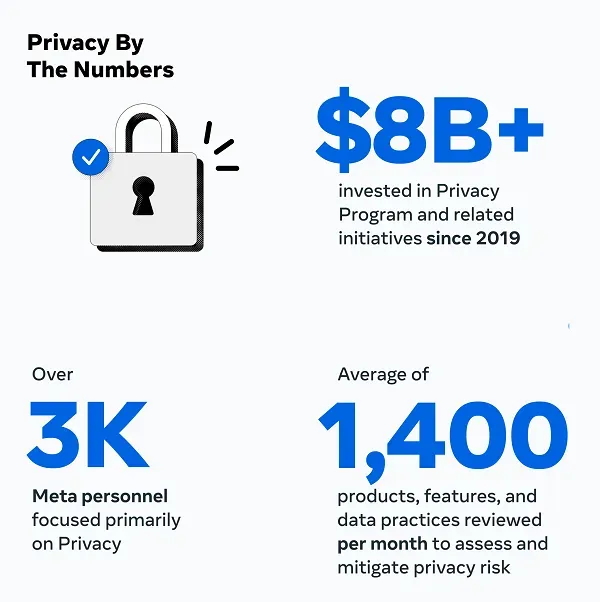How Meta is Shaping the Future of Data Privacy in 2025

In celebration of Data Privacy Day, Meta has highlighted its ongoing commitment to enhancing data privacy and security, an area of long-standing sensitivity for the company.
Meta has faced significant regulatory pressure in recent years and, in response, has outlined various measures to address privacy concerns in a new post.
Meta’s Privacy Efforts by the Numbers
According to Meta:
“Today, nearly four billion people worldwide use our products and services. We recognize the incredible opportunity and deep responsibility we have to manage privacy risks for our community. To meet these responsibilities, we’re investing in cutting-edge privacy technology, utilizing our vast engineering capabilities. Our commitment to data protection will shape the future of how we safeguard personal information.”
Meta attributes much of its current privacy infrastructure to an agreement with the Federal Trade Commission (FTC) reached in 2019. The company was fined $5 billion for privacy violations related to the Cambridge Analytica incident, where data was misused for targeted political campaigns. As a result of this, Meta has significantly upgraded its data protection systems.
Since the Cambridge Analytica breach, Meta has been more cautious about how user information is accessed and shared, with stricter controls over who can access that data.
Adapting to Global Data Protection Standards
Meta has also had to align with evolving data protection regulations, particularly in Europe. The European Union has been proactive in regulating data usage, ensuring that its citizens have control over their personal data.
These combined enforcement efforts and Meta’s own responses have led to significant improvements in data protection. The company now aims to apply these stronger measures to its emerging projects, such as artificial intelligence (AI), augmented reality (AR), and virtual reality (VR).
A New Challenge: AI and Data Integration
Recently, Meta launched a new initiative that integrates Facebook and Instagram user information into its AI chatbot to personalize responses. This move aligns with Meta’s goal of using its vast data to improve user experiences. However, this also raises concerns about how such extensive personal data is handled and who ultimately has access to it.
Meta is also investing heavily in new data centers to store the vast amounts of information needed to support its next-generation technologies. While this push is aimed at enhancing user experiences, it also highlights the significant amount of data Meta collects and manages on billions of people around the world.
The Responsibility of Data Control
The sheer volume and power of the data Meta controls are noteworthy. While access to this data is more restricted than in the past, Meta itself still holds the reins. As a major business entity, Meta has the potential to use this data in various ways—raising concerns about how this power might be wielded.
Though it is positive that unauthorized access is now more tightly controlled, it remains important to remember that Meta, as the platform provider, still has access to an immense amount of personal data.
The Bigger Picture
Data Privacy Day serves as a timely reminder of the ongoing privacy issues in the digital landscape. Social platforms, like Meta, collect vast amounts of data on users, which can be used to influence and personalize experiences. As users, it is essential to remain aware of how our data is used and the impact this can have on our privacy.
While we can’t control everything, staying informed and vigilant is key to understanding how our information is used and ensuring that companies are held accountable for the data they collect.